
25 July – 30 August
‘Spiel der Mächtigen’ (‘Game of the Mighty’) was the motto of the 2009 Salzburg Festival programme, which was also overshadowed by a leadership debate. Handel, Rossini, Beethoven, Mozart and Haydn were the main features of the opera season – and Luigi Nono, whose superlative work Al gran sole carico d’amore was shown in the Felsenreitschule/Summer Riding School.
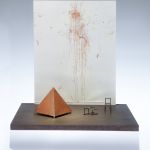
26 July – 31 August
Also in his second season Markus Hinterhäuser arranged for a scenic production as part of the ‘Continents’ series: Salvatore Sciarrino’s opera Luci mie traditrici directed and designed by the German artist Rebecca Horn in the Kollegienkirche – used once more for Festival productions – and lit by Beat Furrer with great musical sensitivity.

27 July – 31 August
Jürgen Flimm started his term as Artistic Director with rarities such as Joseph Haydn’s Armida directed by Christof Loy and Hector Berlioz’s opera about an artist, Benvenuto Cellini. Therefor, film director Philipp Stölzl exploited the Cinemascope stage of the Large Festival Hall to make the grand opéra ‘approach the feeling of great cinema’1 and interpreted it as an opulent stage show, while Valery Gergiev unleashed ‘a storm of sound’2.
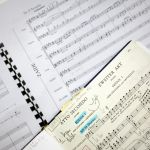
23 July – 31 August
Mozart and the 21st century: in the Mozart Year, Peter Ruzicka scheduled all 22 Mozart operas – and as a counterpoint exclusively music of the 21st century. As many as 16 commissioned works were performed for the first time, including Chaya Czernowin’s Zaide/Adama.
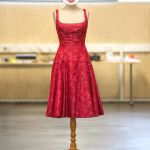
25 July – 31 August
The new production of Verdi’s La traviata directed by Willy Decker with the dream couple Anna Netrebko and Rolando Villazón was a sensational success. The minimalist stage design, an overdimensional clock of life, was Wolfgang Gussmann’s idea.
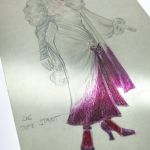
24 July – 31 August
Peter Ruzicka, himself a successful composer, promoted a fresh Festival profile during his term as Artistic Director, on the one hand with numerous first performances, for instance with the ‘Salzburg Passagen’ series, reserved for contemporary music.

26 July – 31 August
After the tumultuous opening première of Mozart’s Die Entführung aus dem Serail/The Abduction from the Seraglio interpreted by the Norwegian director Stefan Herheim, the team Harnoncourt/Kušej continued its successful Mozart cycle with La clemenza di Tito.

27 July – 31 August
Peter Ruzicka made an illustrious start to his artistic directorship: Don Giovanni conducted by Nikolaus Harnoncourt and staged by Martin Kušej was a huge success; Anna Netrebko as Donna Anna advanced to become the public’s darling.

21 July – 31 August
Hans Neuenfels’s radical interpretation of Die Fledermaus, which marked Gerard Mortier’s departure, stirred up a final scandal and passionate objections. ‘[T]he brilliant national shrine of the Austrians – almost as holy as Mozart.
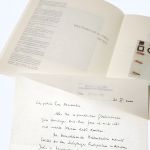
23 July – 31 August
Despite cuts in the budget, in 2000 seven opera premières were planned including the world première of Kaija Saariaho’s L’amour de loin, under Kent Nagano and Peter Sellars, also Hans Neuenfels’s production of Così fan tutte and Claus Guth’s interpretation of Iphigénie en Tauride.
2000s
1999 was not yet over when the Supervisory Board appointed the composer and cultural manager Peter Ruzicka as Artistic Director of the Salzburg Festival with effect from 1 October 2001. At his suggestion, Jürgen Flimm was appointed head of straight drama; however, he resigned in spring 2003, and in 2005 and 2006 Martin Kušej took over the agenda for productions in drama. Jürgen Flimm in turn followed Peter Ruzicka as Artistic Director in autumn 2006.
Nevertheless, it was Gerard Mortier who still dominated the Festival for two seasons. In early 2000, coalition negotiations foundered between the SPÖ (Social Democratic Party of Austria) and the ÖVP (Austrian People’s Party), paving the way for the FPÖ’s (Freedom Party of Austria) participation in the government. Gerard Mortier requested an early termination of his contract, but then decided ‘in solidarity, to support resistance against the FPÖ with all the artistic means at his disposal’; this was in a climate of Austria’s international isolation. Gerard Mortier bade farewell to Salzburg in 2001 with Hans Neuenfels’s radical and scandal-ridden adaptation of Die Fledermaus/The Bat. Likewise in 2001, the course was set to remodel the Small Festival Hall into a House for Mozart, which was opened in 2006.
The beginning of Peter Ruzicka’s period as Artistic Director was overshadowed by the following events: on 11 September 2001, terrorists steered two aircraft into the Twin Towers of the New York World Trade Center. This attack by Al-Qaeda was to change the world permanently.
During his directorship, Peter Ruzicka gave much thought to the redefinition of the ‘Salzburg Dramaturgy’. He saw the Salzburg Festival as a ‘European memory’ ‘that is mindful of the changed perspectives at the start of the 21st century’. He wished to counter the ‘“deconstructive” scenic perspectives’ of the 1990s with ‘stories about human beings’ told with the ‘imaginative means available to the theatre’. After quite a few years in which Mozart’s operas had not been in central focus, the time was ripe for Mozart 22, the theatrical performance of all operas of the genius loci in the Mozart Year 2006. It turned out to be a summer that broke all records. The Salzburg Festival was supported here by Uniqa and Credit Suisse, main sponsors as of 2002 and 2006.
Artistic Director Jürgen Flimm endeavoured to interrelate the sectors and various artistic genres more intensively, basing his seasonal planning motto on metaphysical questions. This was a reflection of the hope of setting accents through art in times of devaluation – a financial crisis shook the global economy from 2007 on: with new formats, through youth projects, or the involvement of young styles in stage direction, as had been successful already in 2002 and later with the establishment of the Young Directors Project sponsored by Montblanc. Supporting the Artistic Director here were the head of concerts Markus Hinterhäuser and Thomas Oberender, the new director of drama – also, and as ever, President Helga Rabl-Stadler and the Commercial Director Gerbert Schwaighofer. Flimm made a resounding start in his role as Artistic Director in 2007 by winning Riccardo Muti as spiritus rector of the Whitsun Festival.
